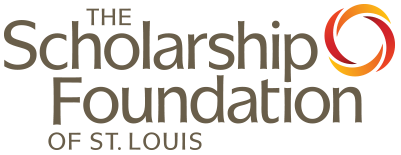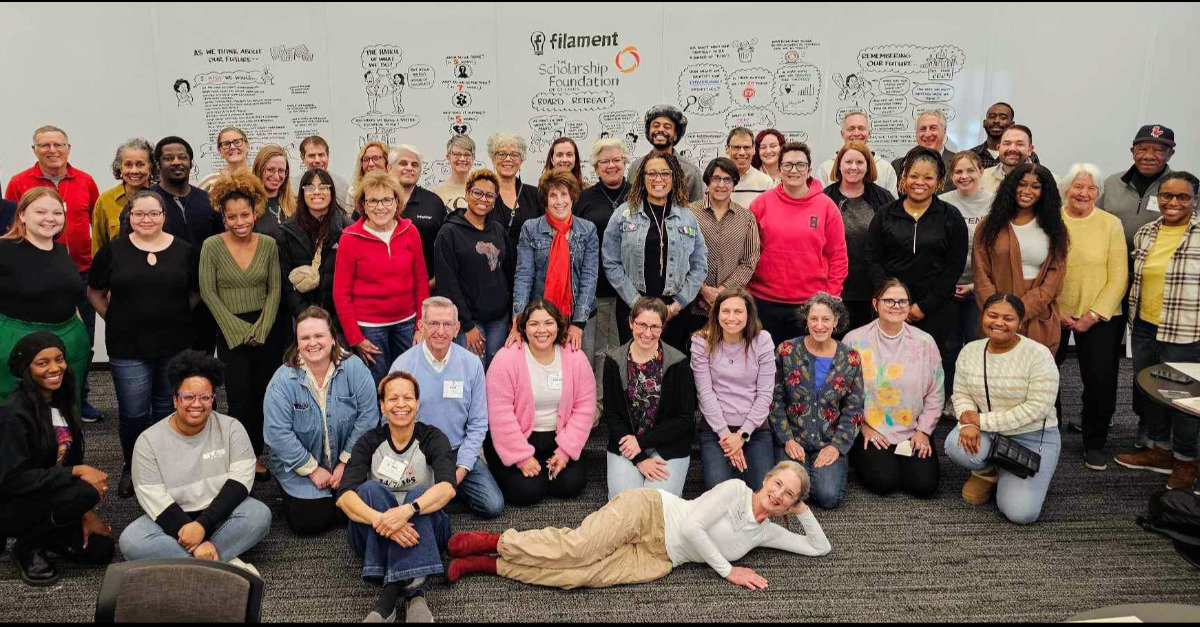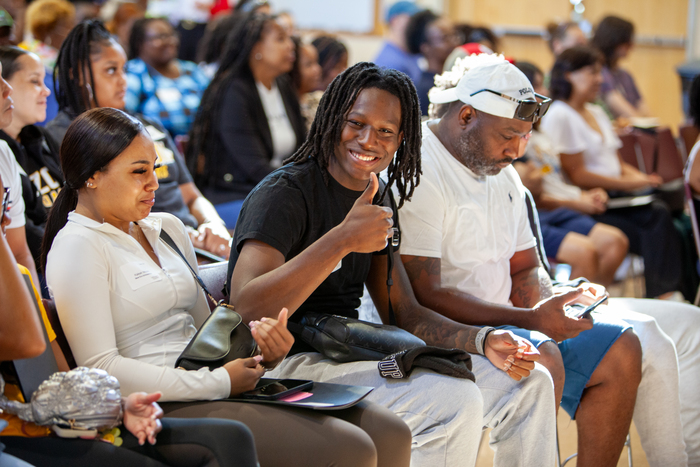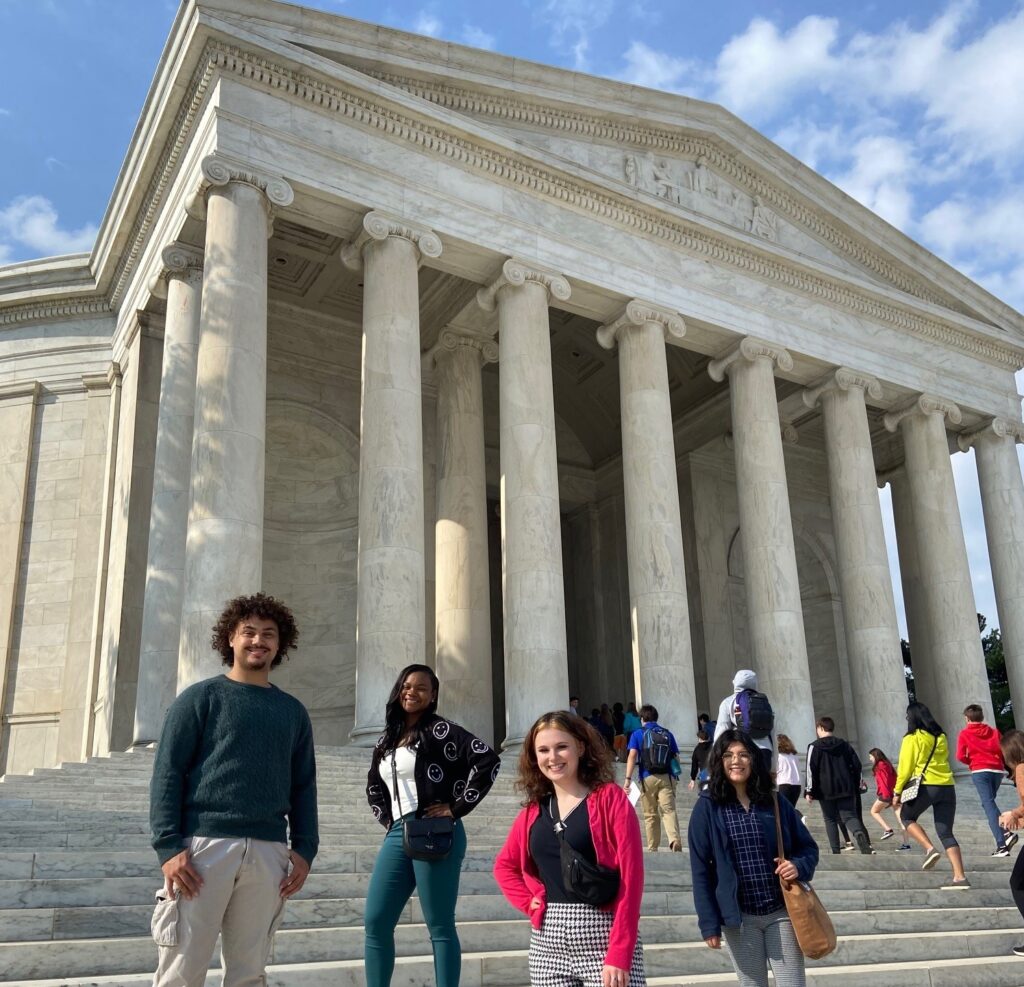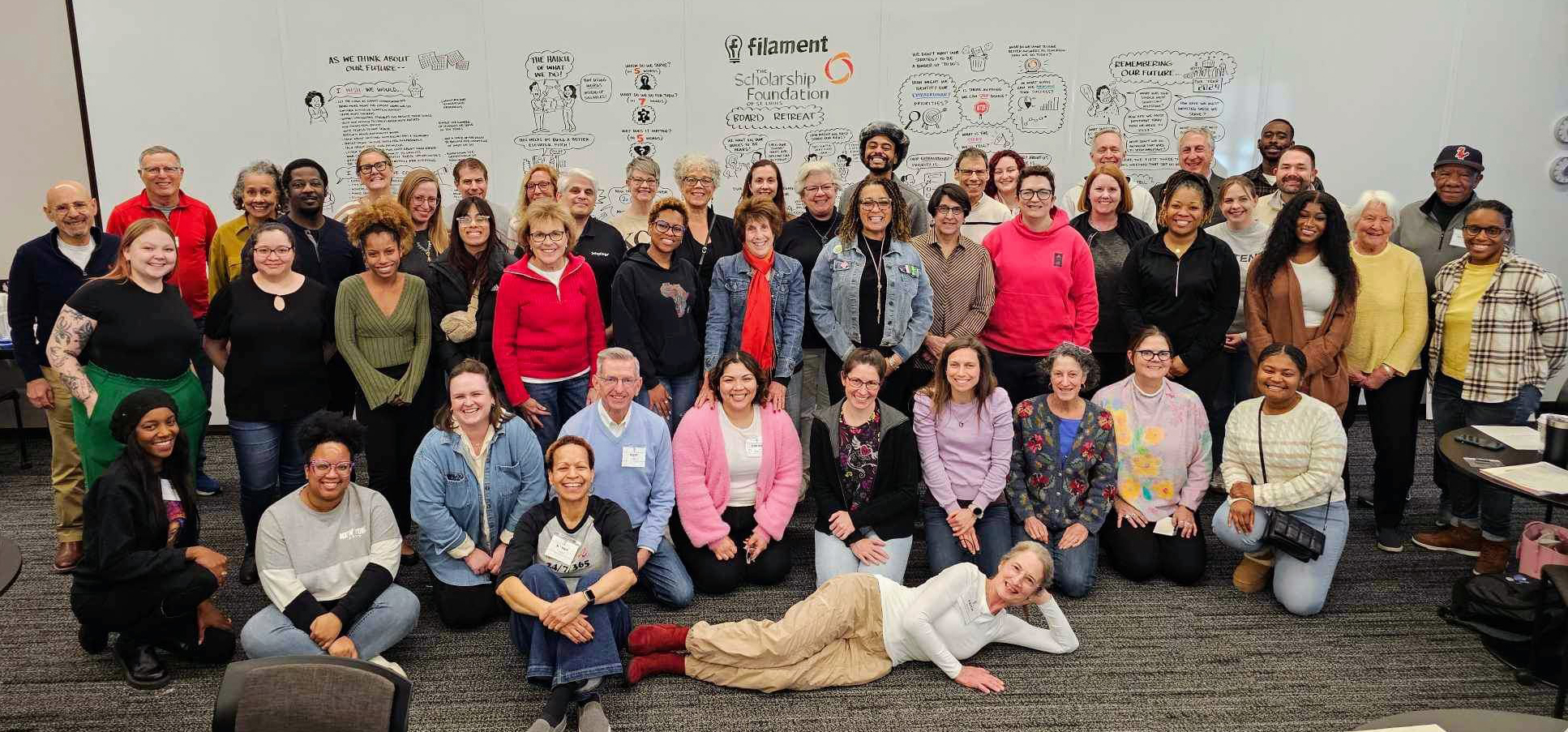
Scholarship Foundation board members, staff, and policy fellows, February 2024
This is all wrong.
In any other year except worldwide pandemic in 2020, today would have been our application deadline at The Scholarship Foundation of St. Louis. On this day, we should be processing applications while guarding against May 1 “Decision Day” celebrations (because no one should commit to a college without knowing they have the financial support to stay enrolled). This should be an anxious and wondrous time at the Foundation and in the lives of young people.
In years gone by, we’d now face a tight six-week window to verify thousands of documents and then evaluate each application for eligibility, selection, and award. There would have been both reading and math for us to do within each student’s application. We should be lining up like sprinters at a relay, knowing hundreds of students have done their part and now they need us to take the baton.
Instead, we’re stalled by FAFSA (the Free Application for Federal Student Aid) which launched three months late this year. Since the launch, many false starts have delayed or derailed the processing of the student forms that serve as gateway to all need-based aid. Each time a hurdle seems cleared, another is revealed. Four years ago, a virus showed us the fragility of systems upon which we thought we could rely. Repeated systems failure is having a similarly profound effect on today’s current and aspiring college students.
Even before the FAFSA fiasco, increasing mistrust of government and of higher education combined with demographic realities had driven down college enrollment. Very public promises of loan forgiveness and racial equity have been broken, sending a signal to students in this country that the risk of continuing their education may just be greater than the benefit. Of course, this message hits hardest among those who The Scholarship Foundation seeks to support.
When Scholarship Foundation founder Meta Bettman wrote in 1926 that higher education is a civic and national priority, she explained that “….education is very costly. It would seem that only those blessed with means may benefit thereby.” In her essay, Mrs. Bettman answered her own lament with a simple one-word solution: “scholarships”. In her 30-year leadership of the Foundation, she directed our attention to those without means, and we maintain that steady focus. She volunteered her own time and money, as do those on our board of directors and so many corporations, foundations and individuals who donate today. So much community support and the brilliance of our young people are our fuel.
Today is April 15 and we are as determined as ever. Our deadlines have been extended. Our staff has doubled down. Our board of directors spent a full hour recently with student policy fellows analyzing the havoc wreaked by a faulty federal form. We have set our goals on continued commitment to last-dollar funding of grants and interest-free loans, reducing debt load (being the only lender students need if scholarship grants don’t fill the gap), and demonstrating over and over that educational attainment can and will CHANGE for the better individuals, families, and communities.
Today, we have seven million “last dollars” to award before students report to campus in August. More than three-quarters of those dollars are available in the form of scholarship grants. The barriers and time constraints are too exhausting to name and some perhaps yet unknown as the FAFSA is not yet “fixed”.
But watch us get it done anyway. After all, this is not a matter of routine but of mission. We are experts at finding a way to do the right thing amidst broken systems.
While today this situation is all wrong, we are determined to make it alright.
– Faith Sandler
